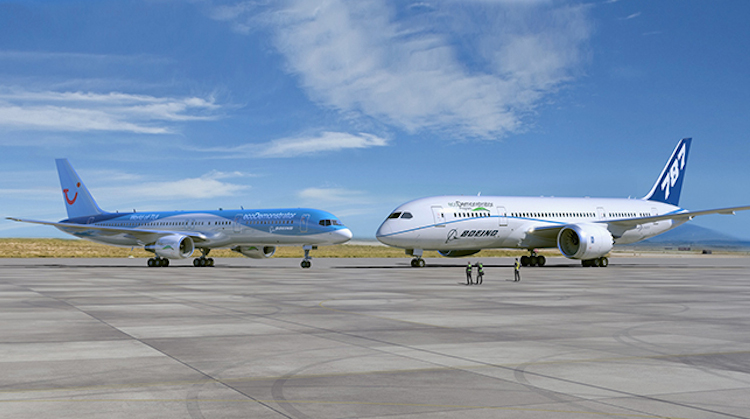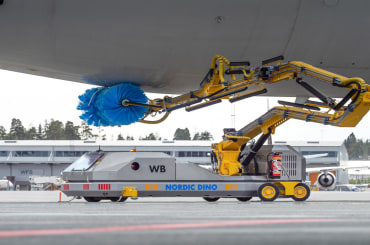
Boeing has released its first sustainability report committed to “transparency” in its efforts, including a pledge to reveal how much carbon emissions (CO2) its jets generate over their lifespan.
The Chicago-based planemaker’s sustainability efforts will revolve around four pillars: people, products and services, operations and communities.
Its key ambition is to deliver commercial aircraft running on 100 per cent Sustainable Aviation Fuel (SAF) by 2030, to enter service by 2050.
Boeing also plans to achieve net-zero carbon emissions at worksites.
While this was announced in January after being pressured by investors and other stakeholders, Boeing released the report to display its in-action efforts since.
In September, the planemaker formed a sustainability organisation and appointed a chief sustainability officer, Chris Raymond.
“As we continue on this journey, we are pleased to publish our first comprehensive report, focused on stakeholder responsiveness and data transparency,” he said.
“We know there’s still work to do and are committed to communicating our progress and holding ourselves accountable to ensure the aerospace industry is safe and sustainable for generations to come.”
By 2050, Raymond expects global air travel will carry 10 billion passengers annually, support 180 million jobs and generate US$9 trillion to the economy worldwide.
In the report, the appendix highlighted its delivered aircraft in 2020 would contribute to 158 million tons of ‘solid products’ (CO2) – 175 million MtCO2e – over its functional lifespan.
Boeing delivered 157 jets to customers last year, the lowest amount since 1984 and Reuters suggested each aircraft would generate emissions up to 866,000 tonnes over its lifespan.
Dan Rutherford, aviation director at the International Council on Clean Transportation, said Boeing aircraft comes with a “high environmental price tag”, based on the data, Reuters reported.
Boeing director of sustainability strategy, Sean Newsum, said the company is required to continue studying the effects of SAF and may need to change certain systems.
Alternatively, regulators such as the US Federal Aviation Administration could adapt fuel standards.
Jet engines are only certified to incorporate 50 per cent of SAF in its fuel as higher-per cent blends do not meet industry standards in the US and the UK.
Boeing in 2018 conducted a flight test program dubbed ecoDemonstrator on a 777, successfully flying a commercial jet using 100 per cent SAF.
This was significant in the company’s demonstration of sustainable aviation efforts.
Boeing’s strategy displayed efforts not only in the fuel realm, but operations as a whole.
It pledges to reduce energy consumption by 12 per cent, water use by 23 per cent, solid waste by 44 per cent and hazardous waste by 34 per cent.












